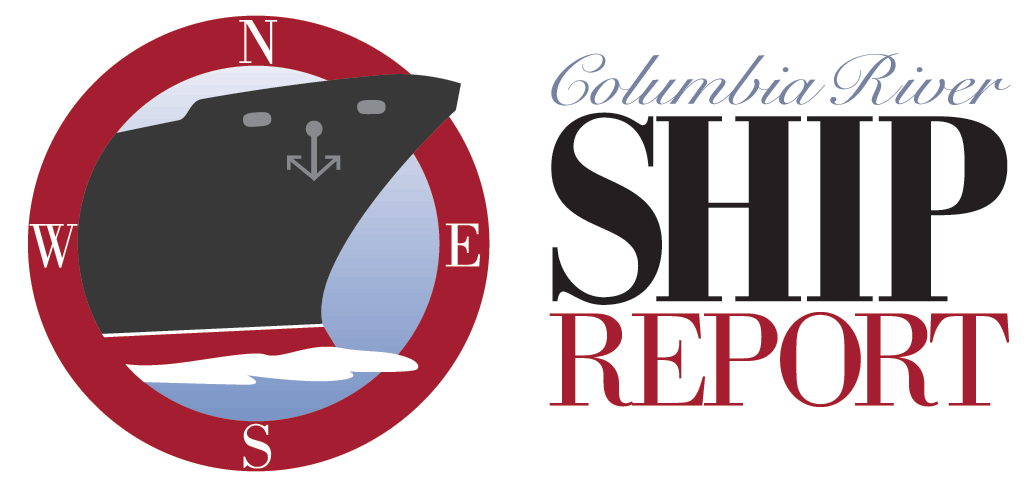The Most Recent Ship Report Podcast:
Archive Podcasts:
The coastal jet is here again – a disconcerting weather quirk of our maritime environment
Ship captains don’t like the coastal jet much. It’s a quirky local weather phenomenon that can cause the weather to get worse the closer approaching ships get to the Columbia River Bar.
Today we’ll hear from Capt. Thron Riggs, who spent many years as a Columbia River Bar pilot, explaining what a coastal jet is.
Podcast: Play in new window
The USS Plainview, a relic of lower Columbia history, beached in the shallows of Hungry Harbor
Today we take a look at the USS Plainview, a once-innovative, prototype hydrofoil ship design that was decommissioned by the Navy in the 1960s. She ended up sidelined by her civilian owner after plans to make her into a seafood processing vessel didn’t pan out. She remains, partially dismantled, on the shores of the Columbia on the Washington side of the river, a few miles east of the Megler Bridge, beached on private property.
Today we’ll take a look at her once exciting history, and why she remains where she is.
Podcast: Play in new window
We’ve got some weather comin’ in
A look at this week’s weather, which seems poised to take things up a notch in terms of stormy conditions. We’ve got an atmospheric river event coming out way. We’ll see how it shakes out.
Podcast: Play in new window
A look at Alaska’s recent coastal weather disaster
Last weekend a typhoon his western Alaska north of the Aleutians, with devastating consequences for coastal communities there. A reminder to all of us who live on the edge of the world, that most of our weather comes to us from the ocean.
Podcast: Play in new window
A look at the ship schedule, the weather and the origin of the term “ides” on this, the Ides of October
In the ancient Roman calendar, the Ides of March marked the 15th of that month, and a fateful day in history for Roman Emperor Julius Caesar. In Shakespeare’s play, named for him, the story recounts a historical fact: that Caesar was assassinated on March 15 (The Ides of March) in the year 44 BC.
Thanks to Shakespeare, that term “ides” persists in our culture, but it’s not just March. October has one too. And today is the Ides of October, a day that marks the middle of the month.
We’ll also take a look at our seesawing fall weather, and see who’s on the river today moving cargo.
Podcast: Play in new window
Interesting ships on the river Tuesday
While all ships are inherently interesting, we have a few unusual ones passing by on Tuesday. One will visit the Port of Astoria.
We’ll see a new Military Sealift Command replenishment oiler headed to the Portland shipyard, a container ship (we don’t see them as often as we used to) headed to the Port of Portland, and a blue water cruise ship stopping for the day at the Port of Astoria.
Podcast: Play in new window
A look at transit times – how long it takes to get from one place to another by ship
Today we’ll look at transit times, how long it takes a ship to go from one place to another at sea, and here on the river.
Podcast: Play in new window
The pilot boat Peacock, now a museum exhibit, was a real game changer for Columbia River commerce
This week marks 15 years since the pilot boat Peacock was lifted out of the Columbia River and placed on land, on the campus of the Columbia River Maritime Museum in Astoria, where she welcomes people traveling past the museum on Marine Drive.
She’s now a retired icon of Columbia River shipping, but when she first arrived here in the late 1960s, the Peacock opened a new era in river commerce. That was thsnks to her unprecedented ability to handle channeling weather conditions that previous pilot boats here could not.
Today we’ll honor the Peacock and talk about her work with the Columbia River Bar Pilots.
Podcast: Play in new window
A look at who’s on the river today
We’ve got an abundant ship schedule today, so let’s see who’s on the river today, moving cargo, or waiting their turn.
Podcast: Play in new window
Listener question about marine pilots and how they board ships
i got an interesting listener question, about the way that marine pilot’s board a ship using a pilot ladder. The answer illustrates how dangerous the job is, and how much pilots must rely on their own expertise and judgement, moment to moment, to safely do their jobs.
Podcast: Play in new window


